How to do it yourself!
-
Wild Weather Kitchen Experiments
Watch now to access more details of Wild Weather Kitchen ExperimentsWatch these short videos investigating extreme weather and you can even try to recreate an avalanche, dust storm, flood or tornado for yourself!

-
Measure the speed of light with your microwave
Watch now to access more details of Measure the speed of light with your microwaveBut did you know that a humble kitchen staple can do more than reheat leftovers? With a bar of chocolate and a stationary turntable, you can actually measure the speed of light using your microwave.

-
Practising science: Reading the rocks and ecology
Learn more to access more details of Practising science: Reading the rocks and ecologyHave you ever wondered how scientists analyse the environment? This free course, Practising science: Reading the rocks and ecology, introduces you to the techniques used by science students at residential schools. You will learn how to determine where rocks have come from and how they were made. You will also examine the processes involved in ...

-
Geology toolkit
Take part now to access more details of Geology toolkitDiscover the unique landscape of Great Britain and Ireland with our interactive Geology Toolkit, featuring a geology timeline, rock analyser, rock cycle, landscape features and safety tips.

-
DIY: Measuring latitude and longitude
Read now to access more details of DIY: Measuring latitude and longitudeHow do you measure latitude or longitude? Here's a step-by-step guide on how to work out your latitude and longitude.

Dr Phil Wheeler, Dr Nadia Dewhurst-Richman and Janice Ansine look at the benefits of trees, plus discuss the work of Treezilla. Thinking Allowed ranges across the history of gardening amongst the lower classes - the role of women, and how programmes like Ground Force threw working class traditions out to make way for all that decking. Why do butterflies matter? Willow Neal explains why they should be prioritised for conservation and introduces us to some butterfly species in the UK. How personal awakening can help societal transformation. This free course, Citizen science and global biodiversity, deals with the importance of biodiversity and explores how anyone can contribute to and be involved in identifying and recording wildlife, as a citizen scientist. It looks at what citizen
science is, and how citizen science facilitates public involvement in scientific research ... There is a fascinating world of nature all around us which we can see if we know how to look for it. Wherever you live, be it in a city or the countryside, you will find areas that support a range of wildlife. This free course, Neighbourhood nature, will provide you with basic scientific and observational skills so that you can go into your ... What is ecology and why is it important to our understanding of the world around us? This free course, Introducing the environment: Ecology and ecosystems, looks at how we can study ecosystems to explore the effect that humans are having on the environment. This free course, Watching the weather, describes how meteorological observations are made looking upwards from the surface of the Earth, looking downwards from satellites in space and from aircraft and balloons within the atmosphere. This international network of observations is vital for scientists and forecasters and the results impact on ... Vicky Johnson explores why birds need nesting boxes and how you can create one to help the birds in your garden.Discover more about the world around us
Why we’re mapping a million trees and more!

The working-class garden
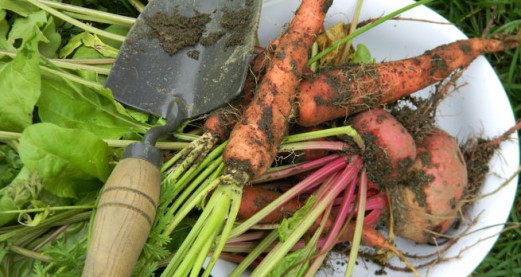
Butterflies tell us more than you might think about our natural world

A socially engaged spiritual response to the Climate Crisis

Citizen science and global biodiversity

Neighbourhood nature

Introducing the environment: Ecology and ecosystems

Watching the weather

In your garden: Birds and nesting boxes

After years spent in dark comedy clubs and cramped rooms above pubs, Mary O’Hara knows what makes her laugh. But what else can a good joke do? She meets the performers and researchers who say that comedy can change how we think and even how we act. Besides being simple mementos, family photographs can offer insights into the past. This free course, Picturing the family, looks at some of the ways photographs can reveal, and sometimes conceal, important information about the past. It teaches the skills and provides some of the knowledge needed to interpret such pictorial sources. Many of us have had the festival experience as a spectator, but what’s it like to actually perform at a festival in front of hundreds of thousands of people? Dr Sean Williams, Lecturer in Music Technology, shares his experience DJing at Burning Man festival in the Nevada desert. Cars have sat nav systems, mobile phones use GPS: maps are important in everyday life whether captured by aerial photography, satellite imagery or simply drawn. This free course, Why maps are made, looks at how we read and evaluate the information in maps and assesses the values embedded within them. From mental maps to public transport and ... Do you want to get more out of drama? This free course, Approaching plays, is designed to develop the analytical skills you need for a more in-depth study of literary plays. You will learn about dialogue, stage directions, blank verse, dramatic structure and conventions and aspects of performance. Museums give children experiences above and beyond the everyday experiences that enrich and build upon classroom teaching and learning. Taking pupils to a museum, or bringing museum artefacts into school, instantly changes the dynamics of the usual learning environment. It gives you as a teacher the opportunity to start afresh with each child, ... How can you take string or a tube and create a device to make music? Here's the science behind the tools of art.Find a new hobby
Can comedy change your life?
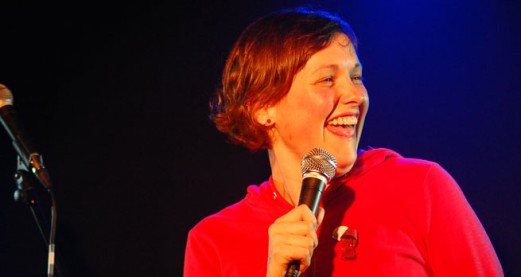
Picturing the family

The importance of planning a musical performance

Why maps are made

Approaching plays

Enhancing pupil learning on museum visits

The science of making musical instruments

This free course, Physical activity: a family affair, aims to explore the effects that the family has on the amount and nature of physical activity a child participates in. The beliefs and behaviours of the family environment are the key psycho-social factors we investigate here. Although 'exercise' is treated as a punchline, we continue to get out and pound the streets. What is it that drives our commitment to keeping fit? Each year thousands of pounds are spent on medications to treat conditions such as anxiety and depression. These medications often have negative side effects. Exercise is an alternative treatment that is low cost and has few side effects. In this free course, Exercise and mental health, we will look at the links between exercise and improved ... Shonil Bhagwat explains the yogic way of understanding how individual actions relate to global challenges.Get active and get fitter!
Physical activity: a family affair
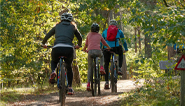
Why do we keep running?
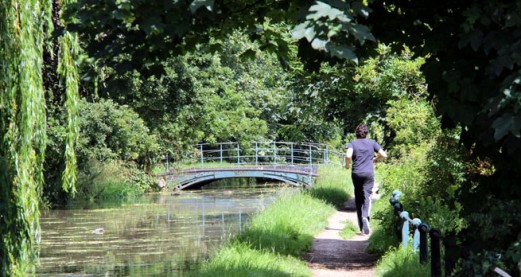
Exercise and mental health

Can yoga help us achieve sustainable development goals?

Learn how to look after yourself
-
Depression, mood and exercise
Read now to access more details of Depression, mood and exerciseLooking for a few tips on increasing your mood? Dr Jitka Vseteckova explores the relationship between depression and exercise.

-
Stress and anxiety in the digital age: the dark side of technology
Read now to access more details of Stress and anxiety in the digital age: the dark side of technologyWhat is it about new technology that is making many of us anxious and stressed? Dr Gini Harrison and Dr Mathijs Lucassen explore the top five stressors:

-
Outdoor Therapy: The Benefits of Walking and Talking
Read now to access more details of Outdoor Therapy: The Benefits of Walking and TalkingAn area that has been of particular interest is providing traditional talking therapy outdoors. This article explores the pros of connecting with the natural world...

-
The impact of walking and socialising through 5 Ways Café on people living with dementia and their carers: A volunteer’s perspective
Read now to access more details of The impact of walking and socialising through 5 Ways Café on people living with dementia and their carers: A volunteer’s perspectiveThe 5 Ways Dementia Friendly Café in Milton Keynes includes a guided walk for those with dementia. Andrew, a volunteer from the cafe explains more about the project with The Open University and Park's Trust...

-
Play, learning and the brain
Learn more to access more details of Play, learning and the brainThis free course, Play, learning and the brain, examines the area of brain-based learning, with a particular focus on the development of the young child's brain, and is of particular relevance to those who work with young children. We begin by looking at the structure and functions of the brain, and the impact that sensory deprivation can have ...

-
5 reasons why exercising outdoors is great for people who have dementia
Read now to access more details of 5 reasons why exercising outdoors is great for people who have dementiaSeverity of dementia is linked to getting older. In this article Dr Jitka Vseteckova tells us of the five ways exercise can benefit people with dementia...

-
The benefits of outdoor green and blue spaces
Read now to access more details of The benefits of outdoor green and blue spacesThe COVID-19 pandemic led to an increased focus on the value of participating in nature. This article explores how outdoor spaces can improve our mental health.

-
Five tips on how to plan new self-care routines
Read now to access more details of Five tips on how to plan new self-care routinesDr Sharon Mallon explores what is meant by self-care before introducing you to some of the top inexpensive and time-effective ways that you can introduce self-care practices into your life.
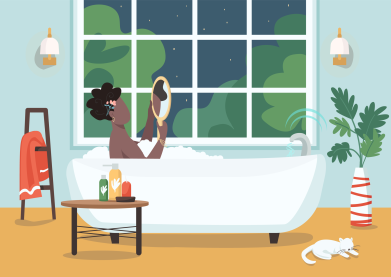
-
How to make the most out of our visit to the Great Outdoors: walking with The Parks Trust and staying mindful
Read now to access more details of How to make the most out of our visit to the Great Outdoors: walking with The Parks Trust and staying mindfulA new resource aimed to help people with dementia engage with their surroundings has been developed by The Parks Trust in Partnership with The Open University. This article explains more...

All about books. You could even have a go at writing one!
-
Literature and the Environment
Read now to access more details of Literature and the EnvironmentCan reading encourage us to appreciate the environment and make sustainable changes to our lives?

-
Ten top tips for writing a novel
Read now to access more details of Ten top tips for writing a novelGot a novel bursting to get out? These tips from novelist and lecturer Sally O'Reilly may surprise you...

-
What happens to you when you read?
Learn more to access more details of What happens to you when you read?Ever wondered about the psychology of literature or stories? Or how a certain narrative might change our attitude or perspective?

-
Exploring books for children: words and pictures
Learn more to access more details of Exploring books for children: words and picturesMany people have fond memories of the stories they encountered in childhood, perhaps especially of those wonderful picture books and illustrated tales which fired our young imaginations and transported us to magical worlds. To an adult’s eye, some picture books may seem remarkably simple, even oversimplified. However, in this free course, ...

-
Encouraging book talk in the school library
Learn more to access more details of Encouraging book talk in the school libraryAs adults we sometimes struggle to justify our feelings about particular books, but children are quite clear about what they like and don't like. It is possible to get children to discuss why they liked or did not like particular books and to encourage them to think more deeply about the books they've read. This free course, Encouraging book ...

-
Start writing fiction
Learn more to access more details of Start writing fictionHave you always wanted to write, but never quite had the courage to start? This free course, Start writing fiction, will give you an insight into how authors create their characters and settings. You will also be able to look at the different genres for fiction.

-
What do literary agents do?
Listen now to access more details of What do literary agents do?Johnny Gellar explains what it is that literary agents do to earn their money - and help their authors earn theirs!

-
Approaching poetry
Learn more to access more details of Approaching poetryDo you want to get more out of your reading of poetry? This free course, Approaching poetry, is designed to develop the analytical skills you need for a more in-depth study of literary texts. You will learn about rhythm, alliteration, rhyme, poetic inversion, voice and line lengths and endings. You will examine poems that do not rhyme and learn ...

-
What is poetry?
Learn more to access more details of What is poetry?Have you always wanted to try to write poetry but never quite managed to start? This free course, What is poetry?, is designed to illustrate the techniques behind both the traditional forms of poetry and free verse. You will learn how you can use your own experiences to develop ideas and how to harness your imagination.

Fancy stargazing? Find out how
-
The colour of stars
Read now to access more details of The colour of starsEver wondered why some stars appear slightly blue and others red? Looking at the life cycle of a star will explain why...

-
In the night sky: Orion
Learn more to access more details of In the night sky: OrionIn this free course, In the night sky: Orion, you will explore the night sky, discover how stars formed and find out about exoplanets, all through the constellation of Orion.

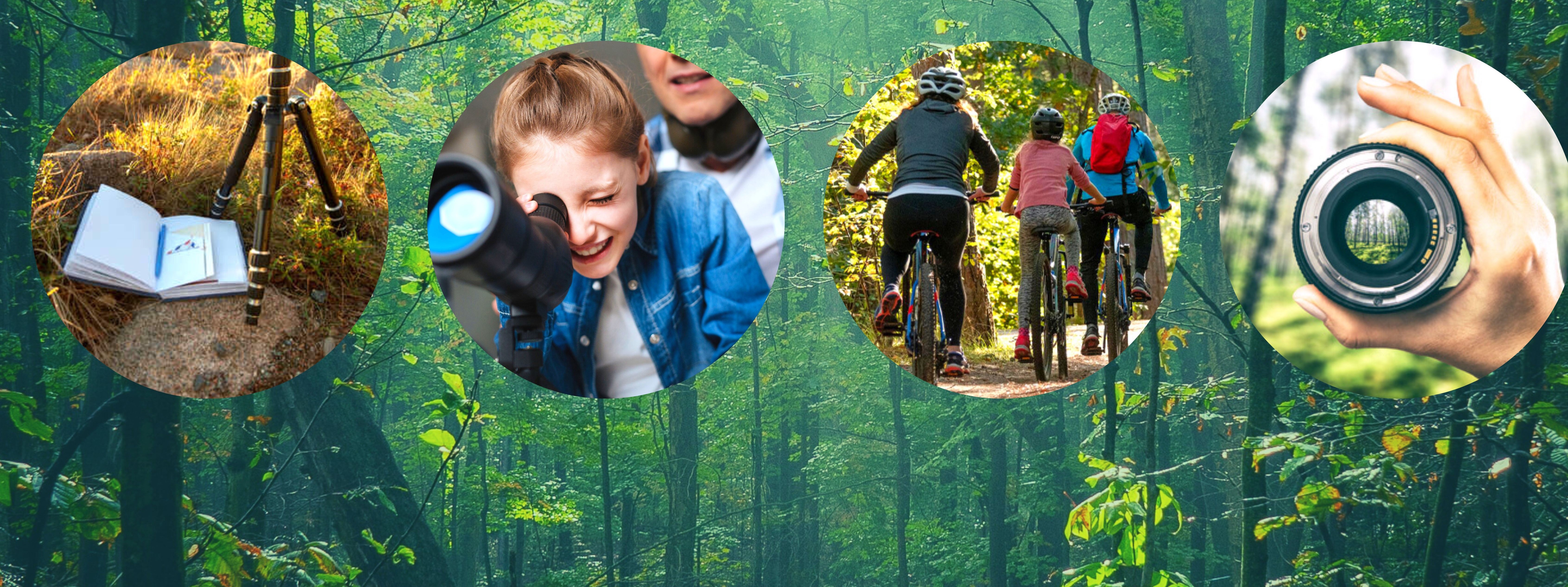
Rate and Review
Rate this article
Review this article
Log into OpenLearn to leave reviews and join in the conversation.
Article reviews